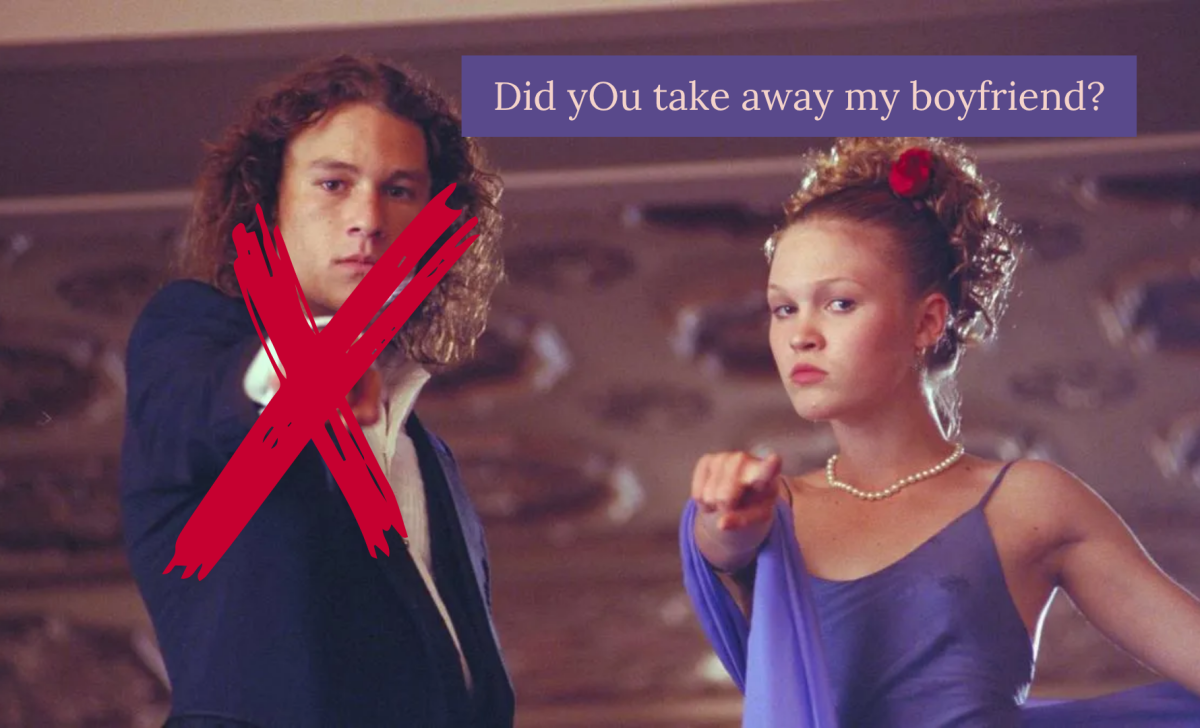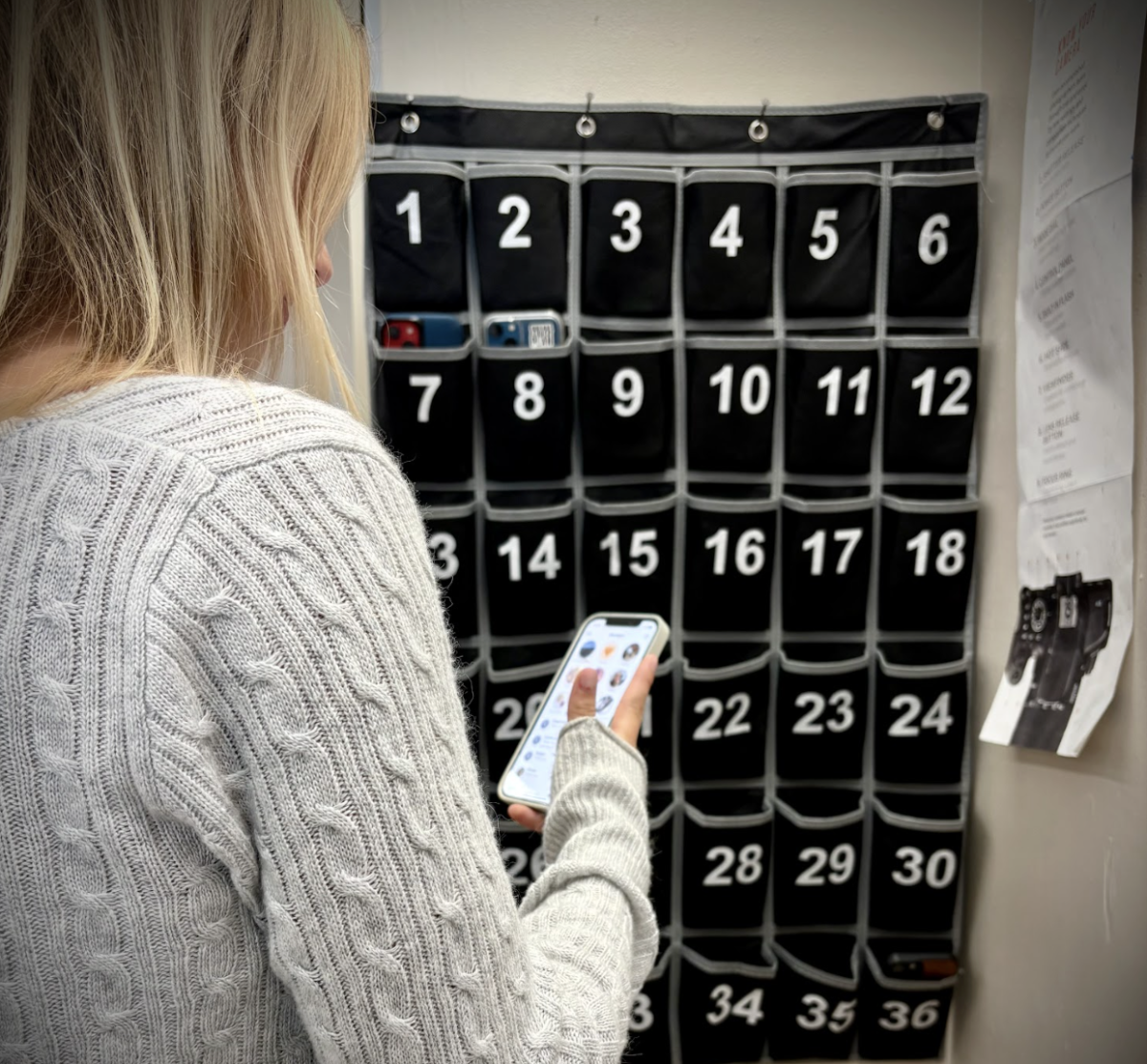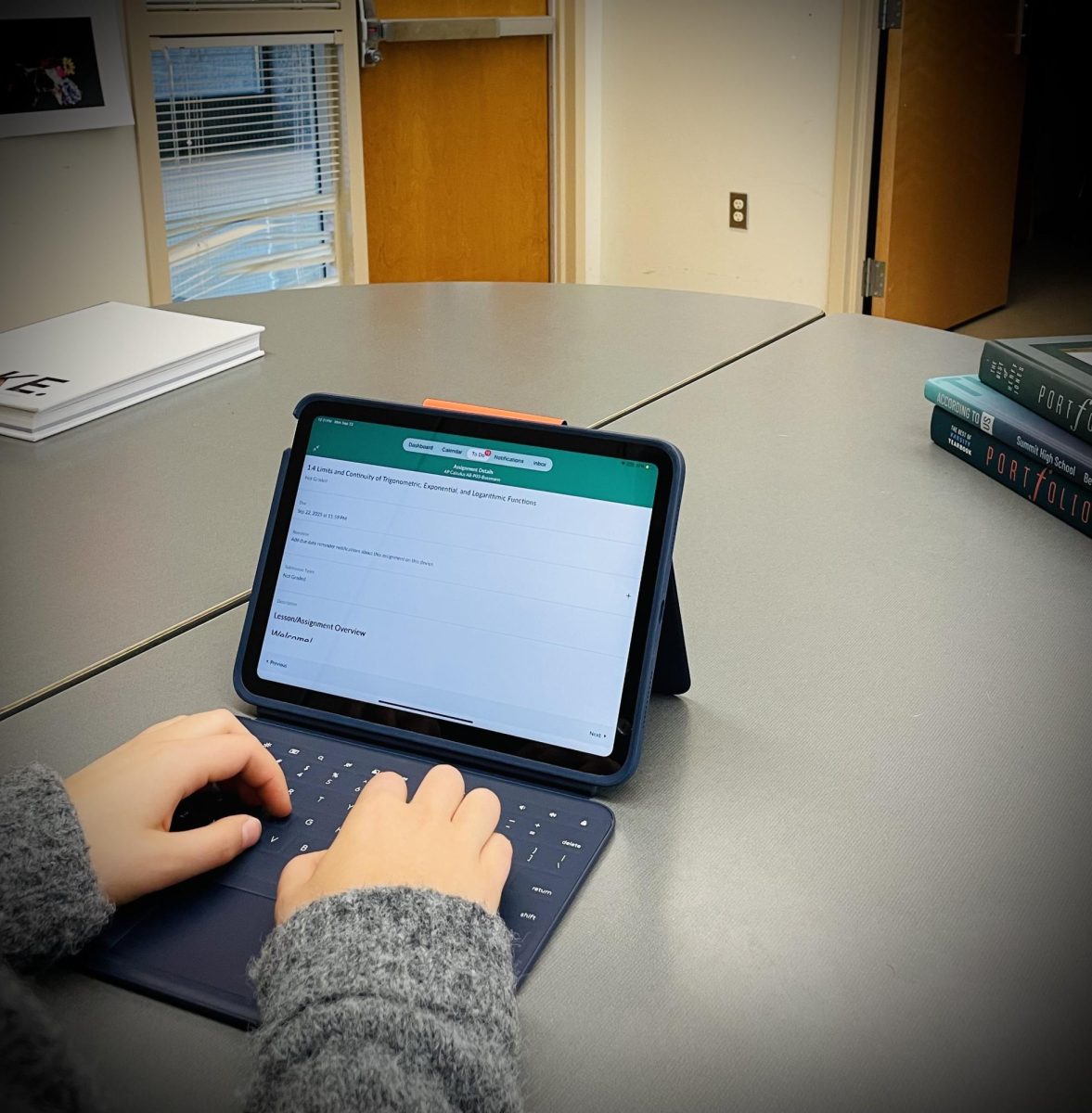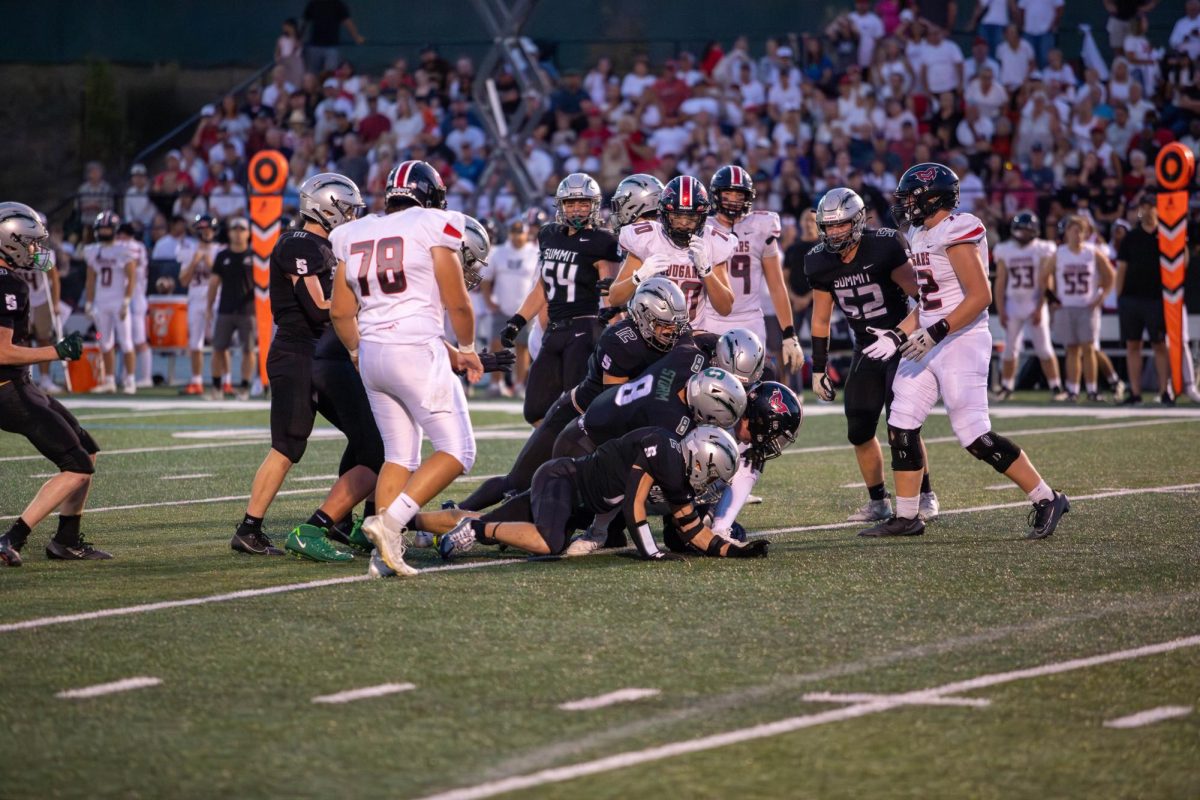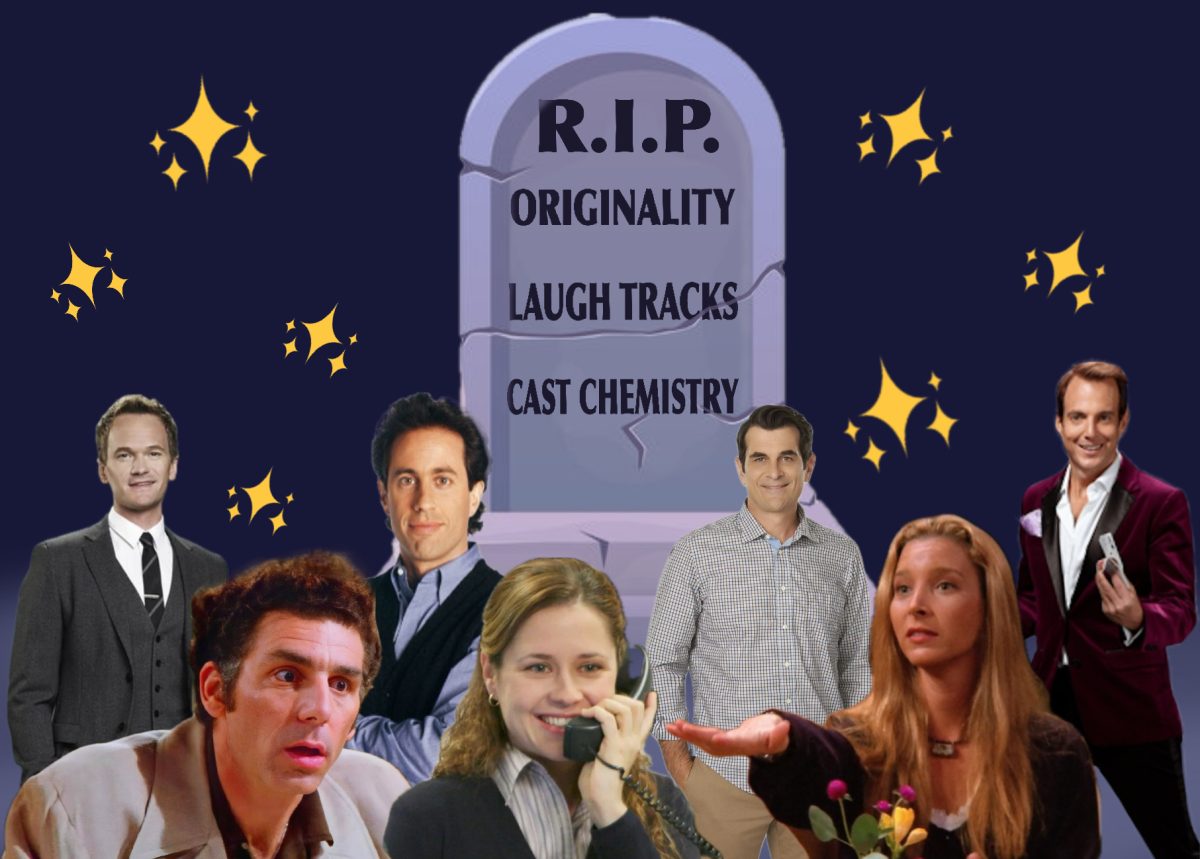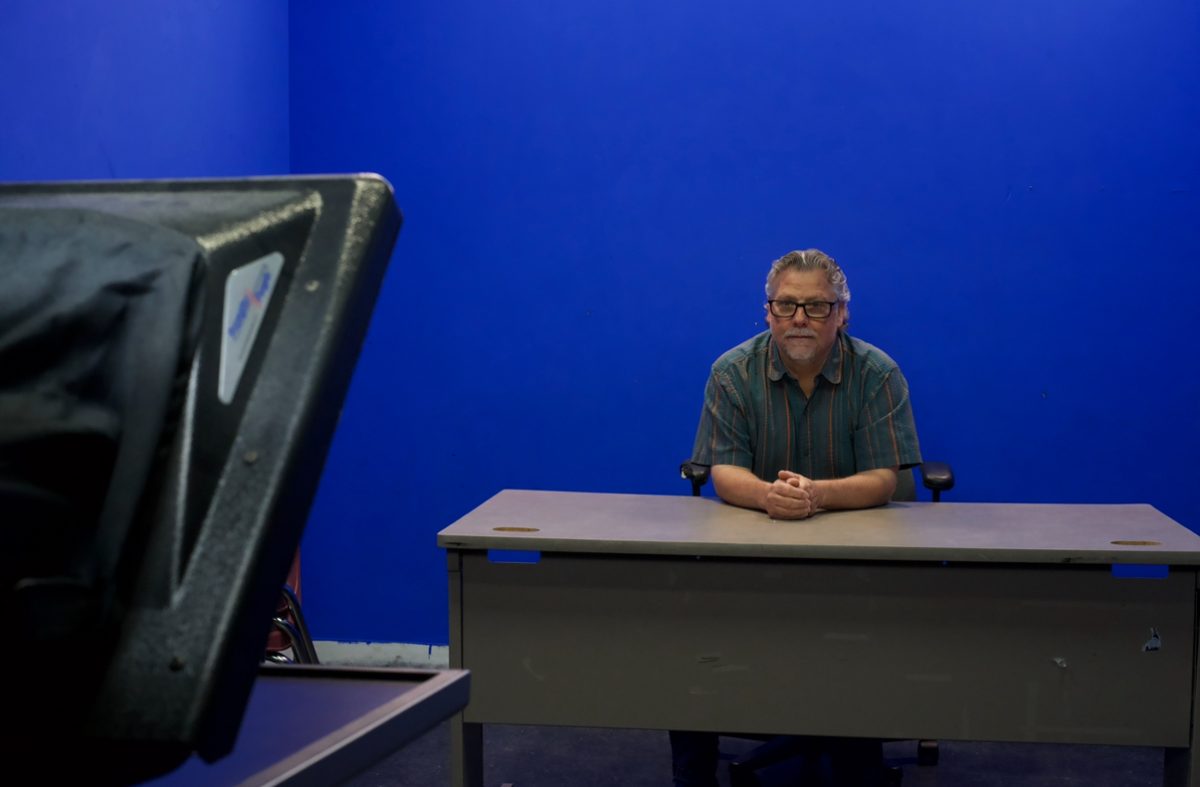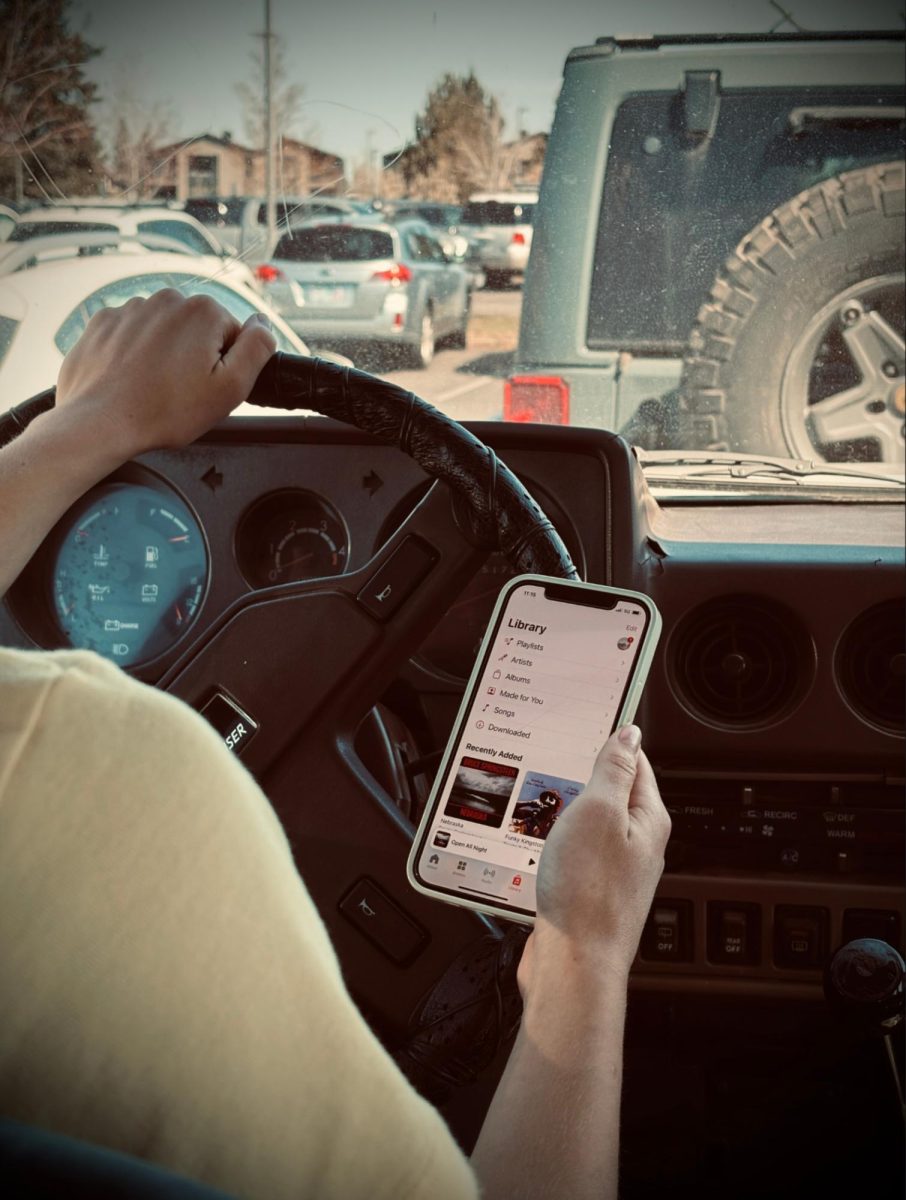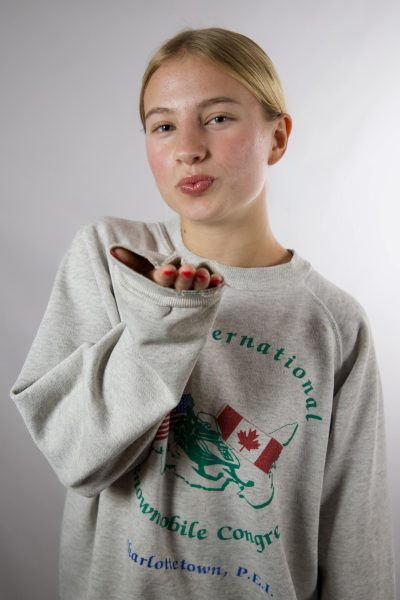I woke up Wednesday morning with absolutely no desire to go to school, but my ever-encroaching AP tests and quickly declining grades were a powerful (though unwelcome) motivator to get me out of bed and into Summit High. So I braided my hair, put on a semi-decent I’m late but I can’t wear pajamas again outfit, and headed to school. And when the bell rang in the middle of second period, I followed the long line of shuffling high school students into the hot, dark auditorium, only to see a massive drop-down screen suspended over the stage displaying, in looming letters, the blue and yellow words; “Hang Up and Drive.”
I’m pretty sure the first words out of Steve Johnson’s mouth (the man standing on the stage in that hot, dark auditorium in front of a crowd of a couple hundred half-asleep, high or otherwise occupied high schoolers) were something along the lines of “Hi everyone, I’m Steve and this is my lovely, beautiful, gorgeous, stunning wife, Jacy,” plus or minus a couple other adoring adjectives. It was so cringy I almost banged my head against the seat in front of me. I could hardly stand it. Jacy Good, standing across the stage from him, clutching her left arm to her chest, also seemed to cringe a little. But by the end of those 40 minutes the last thing on my mind was the sappiness of Steve’s words.
Their presentation began with a story. A story similar to one that your Grandma and Grandpa might tell you and your 20 cousins, as you’re all gathered in their 1970’s living room during one of those beyond-chaotic family reunions. It was the story of their lives, starting from when little Jacy was born on her family’s farm in Pennsylvania to when the two of them met, and fell in love, in college.
They traded off speaking, narrating their life stories for the crowd as they shared memories together. It was heart-warming to hear them talk, and it took the dull edge off of my initial boredom, the boredom that took shape when I first walked in and saw the drop-down screen screaming a message about distracted driving that I, as a recently-licensed driver, felt like I had already heard a thousand times. But, if I’m being honest, though the story was cute, it seemed to have nothing to do with silencing our phones when hitting the road.
Until they began to speak about the crash. It was then that I realized that the long and love-filled story they had just shared was their way of telling the audience that they did not deserve the pain that tore through their lives on May 18, 2008.
That afternoon, Jacy, along with her parents, Jean and Jay Good, were driving back to their home in Lancaster, Pennsylvania after Jacy’s college graduation, when they were struck at an intersection, head-on by a semi-trailer truck. The truck had swerved in an attempt to avoid a blue minivan that had cut across its path while it was turning left on a red light. The minivan was driven by a high school senior boy who had just picked up a phone call. Jean and Jay Good were pronounced dead at the crash, and as Jacy lay in a coma in the hospital she was given a ten percent chance of survival.
It felt miraculous that the woman standing on the stage right in front of me was the same woman that was given a ten percent chance of survival. But that wasn’t the reason that I opened my tired eyes, sat up from my slump and paid attention.
It was the way that she had started this story from the very beginning. From when she was just a happy little child with two hippy parents and the whole wide world in front of her. It was the way that Steve stared so intensely at her when she spoke, like there wasn’t a crowd of hundreds right in front of them, like she was truly the only woman on this earth that he had ever loved. His love was so clear that it made you wonder what he would do without her.
But 17 years ago, he almost found out what it’d feel like to lose her. A teenager, just like the hundreds that were now sitting in the auditorium staring at them, had been distracted by his phone as he was driving and had taken two lives and forever changed a third. And this love story that they shared made it matter even more. It spotlighted just what the crash had shattered, it humanized two people whose tragedy we too often fail to internalize when we are staring at it through a screen.
“For me it was like, ‘Wow, that’s so cute’ like they were really in love with each other and it [the story] made it so much more vulnerable because he went through it too,” said Kenna Kemp, a junior at Summit High School.
The presentation resonated with me, too—much more than any other news clip, headline or car crash video ever did. I will shamefully admit that their story is a story that I am warned about every other day. It is a potentiality that Driver’s Education drilled into me, one that I know I never want to perpetrate. But before I sat down in that auditorium and heard their story, I still used my phone a terrible amount while driving.
I’d check my notifications or send a quick text while sitting at a stop sign, and I didn’t think twice as I gunned my sputtering engine. I was definitely the opposite of a model driver (my passengers could attest to that as they would go flying around the backseat of my car in a nonconsensual game of Jell-O), but I would also bet that I was a pretty accurate representation of the type of “reckless driving” that most teenagers participate in.
Anyone of us sitting in that audience could have been that teenage boy. I learned that Wednesday about the full life of a woman who so many love, a woman who had courage and grit and a wide, happy smile. A woman who had lost both of her parents, lost control over the left side of her upper body and suffered acute brain trauma and, in one moment, lost the kind of life she was so ready and prepared to have. All because of one teenager who was distracted by his phone for one second.
As I walked out of that assembly, I told myself one thing: I will never again pick up my phone while I am driving. I will not be that teenager. I will put it on “Do Not Disturb” and I will keep my eyes on the road and I will not ruin the life of someone driving in the lane next to me, someone who still has a life left to live. And I’m pretty sure that, from the way the girl next to me was sniffling, and the way that the boy in front of me kept angrily brushing his eyes, and the shock in my sister’s voice when I saw her in the hall when she said “Wow, I was not expecting that,” most of the students at Summit High School won’t either.


